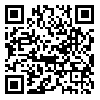Volume 11, Issue 2 (Winter 2026)
Health in Emergencies and Disasters Quarterly 2026, 11(2): 115-128 |
Back to browse issues page
Ethics code: IR.SEMUMS.REC.1399.187
Download citation:
BibTeX | RIS | EndNote | Medlars | ProCite | Reference Manager | RefWorks
Send citation to:



BibTeX | RIS | EndNote | Medlars | ProCite | Reference Manager | RefWorks
Send citation to:
Yaghmaei S, Ebrahimian A, Pourteimour S. Nurses’ Perspectives on Gender Equality Policies During the COVID-19 Response Phase. Health in Emergencies and Disasters Quarterly 2026; 11 (2) :115-128
URL: http://hdq.uswr.ac.ir/article-1-719-en.html
URL: http://hdq.uswr.ac.ir/article-1-719-en.html
1- Department of Nursing, School of Nursing and Midwifery, Hamadan University of Medical Sciences, Hamadan, Iran.
2- Spiritual Health Research Center, Qom University of Medical Sciences, Qom, Iran. ,ebrahimian.aa@gmail.com
3- Patient Safety Research Center, Clinical Research Institute, Urmia University of Medical Sciences, Urmia, Iran. & Nursing Care Research Center, Semnan University of Medical Sciences, Semnan, Iran.
2- Spiritual Health Research Center, Qom University of Medical Sciences, Qom, Iran. ,
3- Patient Safety Research Center, Clinical Research Institute, Urmia University of Medical Sciences, Urmia, Iran. & Nursing Care Research Center, Semnan University of Medical Sciences, Semnan, Iran.
Abstract: (1368 Views)
Background: Gender equality is a foundational aspect of the nursing profession. However, there is limited documentation of how gender considerations were incorporated into policy-making during the COVID-19 pandemic. This study explored nurses’ perspectives on gender equality policies during the pandemic response phase.
Materials and Methods: A qualitative content analysis was conducted using semi-structured interviews with 14 nurses working in COVID-19 wards. Participants were selected through purposive sampling, continuing until data saturation. Data were analyzed following Graneheim and Lundman’s method.
Results: The central theme identified was “gender inequality in management policies and resource allocation,” derived from four categories: Inefficient management, inequality in interactions, inequality in resource management, and inadequate attention to staff needs. Nurses reported experiencing gender bias in decision-making and observed unequal access to resources and support during the pandemic.
Conclusion: Nurses perceived significant gender inequality in policy-making during the COVID-19 response phase. Health system leaders and policymakers should prioritize gender equity in all stages of disaster preparedness and response. Further research is necessary to explore gender perspectives in similar high-stress healthcare environments.
Materials and Methods: A qualitative content analysis was conducted using semi-structured interviews with 14 nurses working in COVID-19 wards. Participants were selected through purposive sampling, continuing until data saturation. Data were analyzed following Graneheim and Lundman’s method.
Results: The central theme identified was “gender inequality in management policies and resource allocation,” derived from four categories: Inefficient management, inequality in interactions, inequality in resource management, and inadequate attention to staff needs. Nurses reported experiencing gender bias in decision-making and observed unequal access to resources and support during the pandemic.
Conclusion: Nurses perceived significant gender inequality in policy-making during the COVID-19 response phase. Health system leaders and policymakers should prioritize gender equity in all stages of disaster preparedness and response. Further research is necessary to explore gender perspectives in similar high-stress healthcare environments.
Type of article: Research |
Subject:
Qualitative
Received: 2025/03/1 | Accepted: 2025/06/13 | Published: 2026/01/1
Received: 2025/03/1 | Accepted: 2025/06/13 | Published: 2026/01/1
Send email to the article author
| Rights and permissions | |
 |
This work is licensed under a Creative Commons Attribution-NonCommercial 4.0 International License. |








